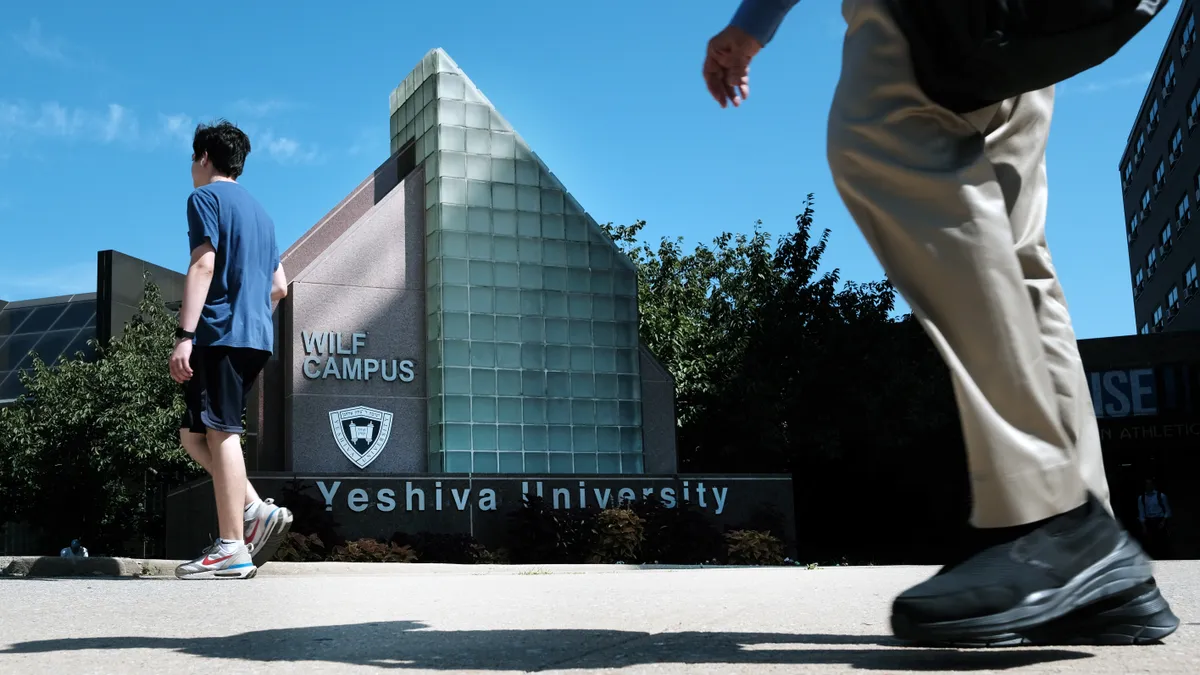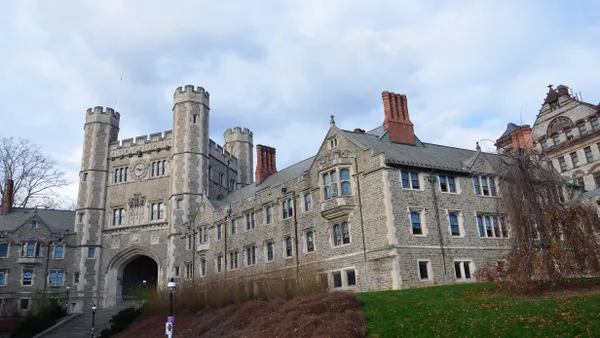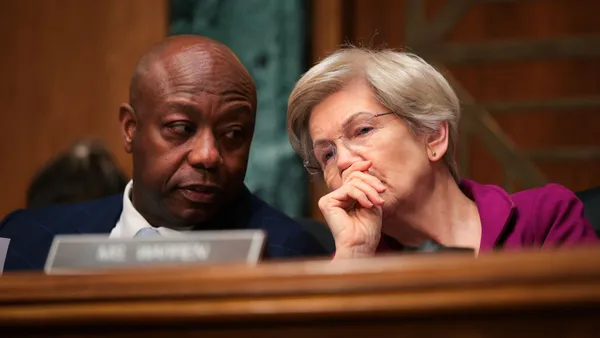Dive Brief:
- A New York court's order telling Yeshiva University to recognize an LGBTQ club is back in effect after the U.S. Supreme Court declined Wednesday to continue a temporary pause of a lower court’s ruling.
- Justices voted 5-4 to stop blocking a trial court's June order that the university, historically affiliated with Orthodox Judaism, must recognize the club under New York City's human rights law. The decision comes shortly after Justice Sonia Sotomayor temporarily stayed the lower court's order while the Supreme Court weighed Yeshiva's appeal.
- Yeshiva has at least two ways to seek relief in New York courts, the justices wrote. If the university does so and is denied, it can return to the Supreme Court.
Dive Insight:
For now, Wednesday's decision backs the Supreme Court out of a high-profile case in which religious protections clashed with New York City's human rights law.
A New York court ruled in June that the university must recognize the club in part because the 5,500-student institution’s organizing documents do not express an explicitly religious purpose. Yeshiva appealed within New York's court system but quickly asked the Supreme Court to take up the case since its fall club application process was scheduled to end Monday.
Lawyers for students who launched the lawsuit in 2021 protested that state courts haven't finished reviewing the case. But Sotomayor — who handles emergency appeals for a region including New York — said Friday the university wouldn't need to recognize the club until the Supreme Court acted again.
The justices did so quickly, with the majority writing that Yeshiva never said it asked New York courts for an expedited review of the merits of its case. They said the university could also correct a procedural issue with its appeal in New York.
"If applicants seek and receive neither expedited review nor interim relief from the New York courts, they may return to this Court," the justices wrote.
Four conservative justices, Samuel Alito, Clarence Thomas, Neil Gorsuch and Amy Coney Barrett, dissented.
"The First Amendment guarantees the right to the free exercise of religion, and if that provision means anything, it prohibits a State from enforcing its own preferred interpretation of Holy Scripture," Alito wrote. "Yet that is exactly what New York has done in this case, and it is disappointing that a majority of this Court refuses to provide relief."
Like Friday's order, Wednesday's decision is not based on the merits of the case, Marc Stern, chief legal officer of the American Jewish Committee, said in a statement.
"It likely reflects, in large part several or all of the justices, voting to deny a stay because they object to what they see as the abuse of the so-called shadow docket, with parties skipping ordinary requirements of litigation in the rush to obtain a decision by the Court," Stein said. The American Jewish Committee has not taken a stance on the case.
Shadow docket is a term used to refer to the Supreme Court taking emergency actions on procedural issues without extensive briefing or argument. Those actions can have significant effects outside the courtroom in certain situations, such as when a party has asked the court to block a lower court's order.
It only takes four justices to review a case, however. Since four justices dissented, the court could very well take up the issue at a later date.
"Today the Supreme Court instructed Yeshiva University to make an additional effort to get the New York courts to grant them emergency relief and made clear that if that protection is not provided, they can return to the Supreme Court to seek its protection again," said Eric Baxter, a lawyer representing Yeshiva, in a statement. "We will follow the Court's instruction.”














